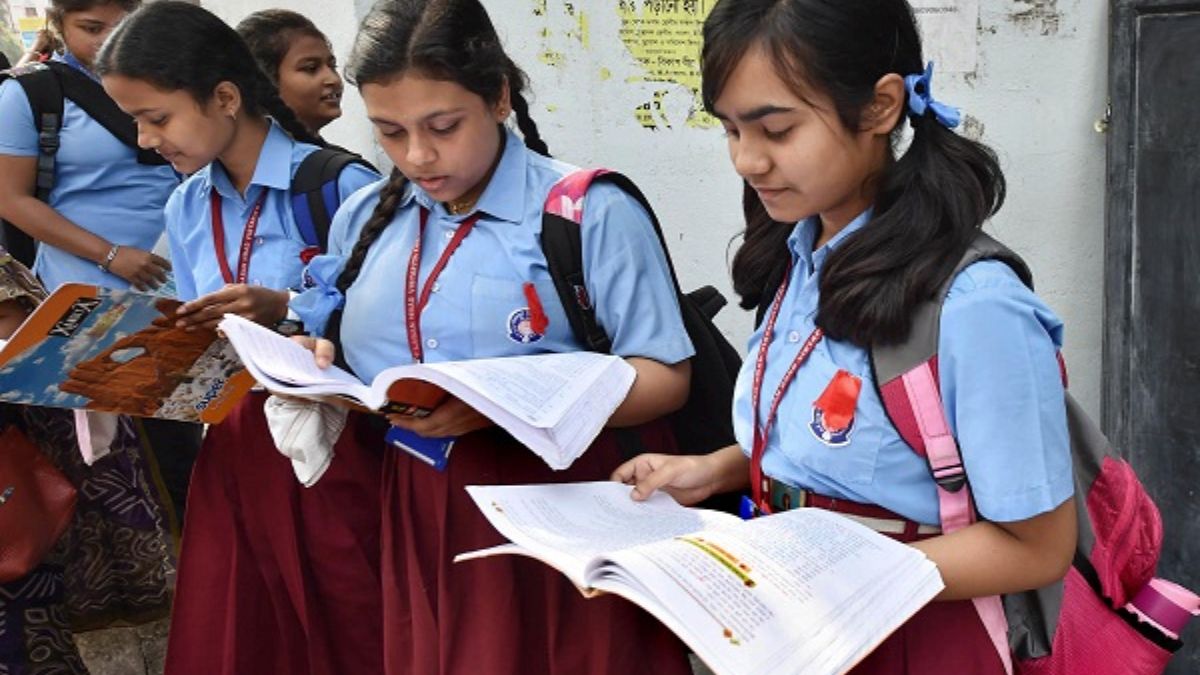The Central Board of Secondary Education is one of India’s largest education boards as every year around 20 lakh students register and appear for the final examinations of class 12. The class 12th education from the CBSE Board lays a strong foundation among students, providing them with a balanced platform for learning in their native language about the syllabus being followed across the nation.
Scoring well in the CBSE Class 12 Exams is a dream for all the students; therefore, in this article, we are sharing some of the most successful Preparation Tips to Score 95+ in CBSE Class 12 Exams. Scroll down in the article and follow the tips.
CBSE Class 12 Exam 2026
The tentative CBSE Class 12 Date Sheet 2026 has been released online by the Central Board of Secondary Education at its official website so that all the aspirants who are studying in the class 12th can start their preparations accordingly. As per the released schedule, the CBSE Class 12 exams for the science, commerce and arts stream are to be started on February 17, 2026 and will conclude on April 04, 2026. All the students who are studying in CBSE Board affiliated schools must start preparing for the exam by studying all the topics from the CBSE Class 12th Syllabus 2026.
How to Score 95 percent in Class 12?
Scoring good marks will not only determine one’s good career opportunities but also help one avoid struggling to get a seat in their preferred college or institution. Here are some of the tips to score 95% in Class 12th board examinations:
1. Understand the Syllabus and Weightage
- Go through the NCERT syllabus as prescribed by CBSE. Every question in the board exams is directly or indirectly based on NCERT.
- Focus on chapter-wise weightage to prioritize topics. For example, in subjects like Mathematics and Physics, certain chapters carry more marks than others.
- Prepare a checklist of completed topics and revise systematically.
2. Make a Realistic Study Timetable
- Divide your time equally among all subjects, with extra focus on weak areas.
- Allocate 2–3 hours daily for core subjects like Physics, Chemistry, and Mathematics/Accountancy.
- Dedicate at least 1 hour daily for languages like English and Hindi.
- Ensure proper breaks to avoid fatigue and maintain consistency.
3. Strengthen NCERT Fundamentals
- For subjects like Physics, Chemistry, Biology, and Mathematics, NCERT is the bible.
- Revise every solved and unsolved example given in NCERT books.
- Practice all diagrams, definitions, derivations, and chemical equations thoroughly.
- In subjects like English, read NCERT-provided literature and poems carefully to build strong comprehension.
4. Practice Previous Years’ Question Papers
- Solve at least the last 10 years of CBSE question papers.
- Understand the pattern of frequently asked questions, mark distribution, and time management.
- Analyze your mistakes after every test to improve performance.
5. Focus on Sample Papers and Mock Tests
- Attempt CBSE official sample papers and mock tests under timed conditions.
- This helps improve speed, accuracy, and writing skills.
- Evaluate your answers with the marking scheme to know how examiners allot marks.
6. Improve Writing and Presentation Skills
- Write to-the-point answers with proper headings, subheadings, and bullet points.
- Use diagrams, charts, and tables wherever applicable, especially in Science and Geography papers.
- Underline key terms and maintain neat handwriting to create a positive impression.
7. Time Management During Exams
- Divide the 3-hour exam time smartly:
- First 15 minutes – Read the entire paper and plan answers.
- Next 2 hours 30 minutes – Write answers systematically.
- Last 15 minutes – Revise and correct mistakes.
- Always attempt questions you are confident about first to secure marks quickly.
8. Regular Revision is the Key
- Revise each subject at least 3–4 times before the board exams.
- Keep short notes, formulas, flowcharts, and key points for last-minute revision.
- Weekly revisions help in long-term retention and boost confidence.
9. Stay Healthy and Stress-Free
- Take proper sleep (minimum 7–8 hours) to improve concentration.
- Eat a balanced diet to keep your mind and body active.
- Practice meditation or light exercise to manage exam stress.
10. Subject-Wise Quick Tips
- Physics & Chemistry: Revise formulas, derivations, and numerical problems. Focus on NCERT-based conceptual questions.
- Mathematics: Practice a variety of problems daily and memorize key formulas.
- Biology: Prepare diagrams, definitions, and NCERT line-by-line notes.
- Accountancy/Business Studies/Economics: Focus on definitions, flowcharts, and case studies.
- English: Practice unseen passages, essays, and previous years’ comprehension questions.
Study Time Table for CBSE Class 12 Exam 2026
The students who are appearing for the CBSE Class 12 Exam 2026 must complete their preparations for the exam by following a simple study time table as listed below. Check the time table and start preparing accordingly:
- 5:00 AM – 6:00 AM – Freshen up, meditate, or plan the day ahead
- 6:00 AM – 9:00 AM – Study: Complete 1 chapter and solve related questions (focus on NCERT Solutions in the first two weeks of the month)
- 9:00 AM – 9:30 AM – Breakfast
- 9:30 AM – 11:00 AM – Study: Move to the next chapter and solve questions from the chapter
- 11:00 AM – 11:15 AM – Snack break
- 11:15 AM – 1:00 PM – Study: Study chapter 3 and solve related questions
- 1:00 PM – 1:30 PM – Lunch break
- 1:30 PM – 3:00 PM – Study: Read chapter 4 and solve all questions
- 3:00 PM – 3:10 PM – Relaxation break
- 3:10 PM – 5:00 PM – Study: Read another chapter or practice questions from previously covered chapters
- 5:00 PM – 5:30 PM – Long break
- 5:30 PM – 7:00 PM – Study: Continue with a new chapter or practice questions from earlier chapters
- 7:00 PM – 7:10 PM – Short break
- 7:10 PM – 8:30 PM – Study: Revise the day’s chapters and practice difficult questions
- 8:30 PM – 9:00 PM – Dinner break
- 9:00 PM – 10:15 PM – Final study session: Keep it light
- 10:15 PM – 10:30 PM – Relax and unwind
- 10:30 PM – onwards Sleep










 CBSE Class 12 Business Studies Previous ...
CBSE Class 12 Business Studies Previous ...
 UPMSP Center List 2026 Released, Check D...
UPMSP Center List 2026 Released, Check D...
 UP Board Class 12 Syllabus 2025-26 Out, ...
UP Board Class 12 Syllabus 2025-26 Out, ...








